The Early Years
Before Speech Therapy Cambodia (STC) began operations in Cambodia in 2014, Cambodians had little to no access to speech therapy services. This is because there is no profession of speech therapy in Cambodia.
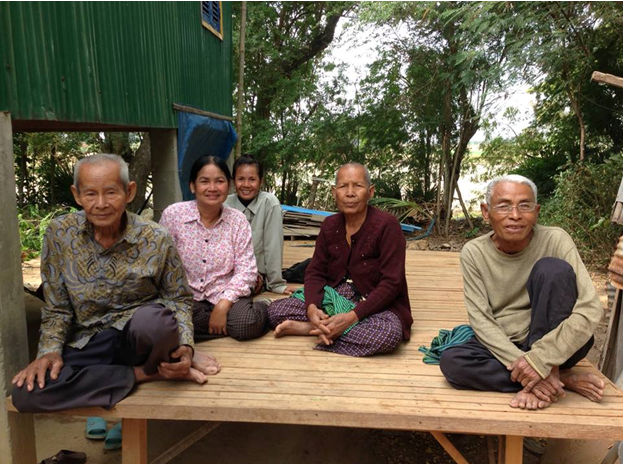
Public hospitals serving the poorest Cambodians could not provide evaluation or treatment for stroke survivors who experienced life-threatening swallowing difficulties (dysphagia).
Dysphagia is a common and serious health issue that can lead to malnutrition, dehydration, aspiration pneumonia and reduced quality of life. According to the World Health Organization, dysphagia affects up to 22% of adults over 50 years old and up to 68% of stroke survivors. In Cambodia, there is a lack of trained professionals and specialized services to address this problem.
Our organization started small with our co-founder, speech-language pathologist (SLP) Elizabeth Chafcouloff, visiting Cambodia in 2014 as a self-funded volunteer to provide short-term dysphagia trainings to doctors at one public hospital in Phnom Penh: Khmer Soviet Friendship Hospital (KSFH).

For two months, we trained two neurologists, a general medicine MD, and one physical therapist in the basics of swallowing evaluation and therapy. This was the first training program of its kind in Cambodia.

In 2015 we began a program at a second hospital, Calmette Hospital, where we conducted trainings for nine physical therapists in swallowing evaluation and therapy.
In early 2016, we began two additional programs for the adult population at the new Sihanouk Geriatric Center and at Kossamak Hospital, both in Phnom Penh. Four PTs were trained at Sihanouk Geriatric Center, and two RNs and two PTs were trained at Kossamak Hospital.

Although our long-term goal was the university certification of Cambodian speech therapists, our first focus was to ensure that our Cambodian trainees had the skills to safely and effectively treat stroke survivors when they entered the hospital.
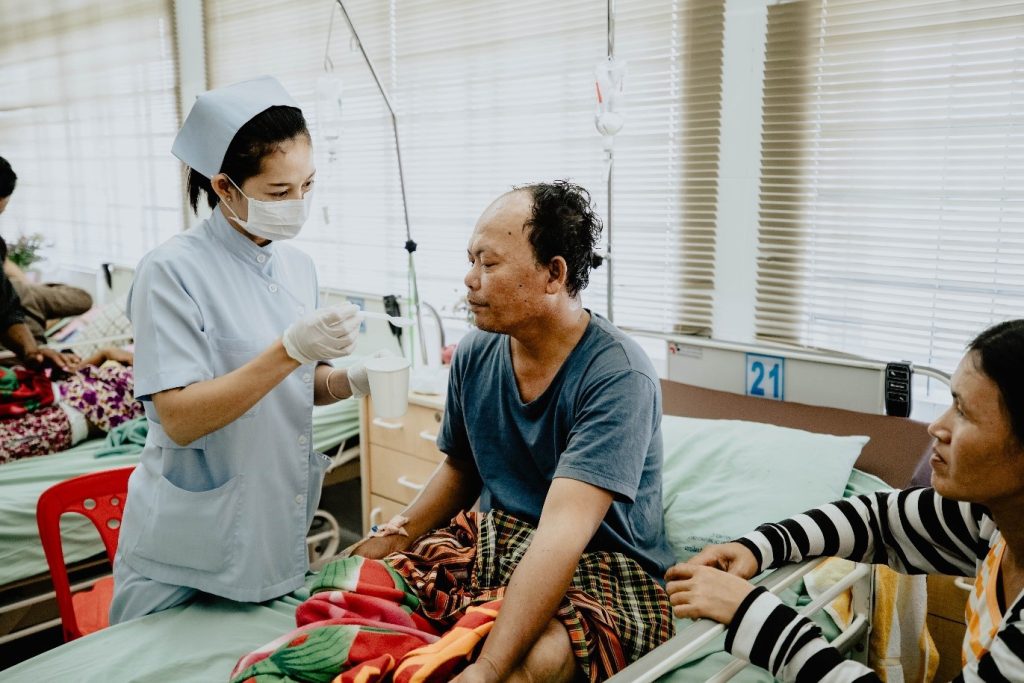
We are very grateful to our original clinical teams, as they taught us so much about how to develop a dysphagia program. Because of their help, we were able to begin writing materials specific to a Cambodian context, and we were able to see what worked and what did not work in terms of education of potential clinicians.
During these early years, additional teams of short-term volunteer speech-language pathologists (SLPs) played a critical role in bringing speech therapy services to Cambodia.
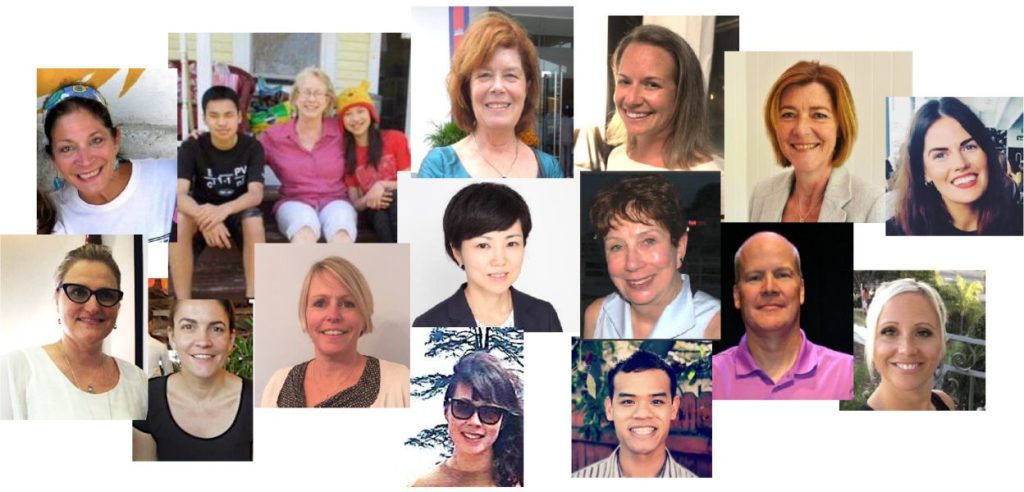
In addition to providing clinical supervision to trainees at public hospitals, these volunteer clinicians and university professors provided specialized short-term trainings in various aspects of speech therapy. STC provided these trainings free-of-charge to qualified participants.
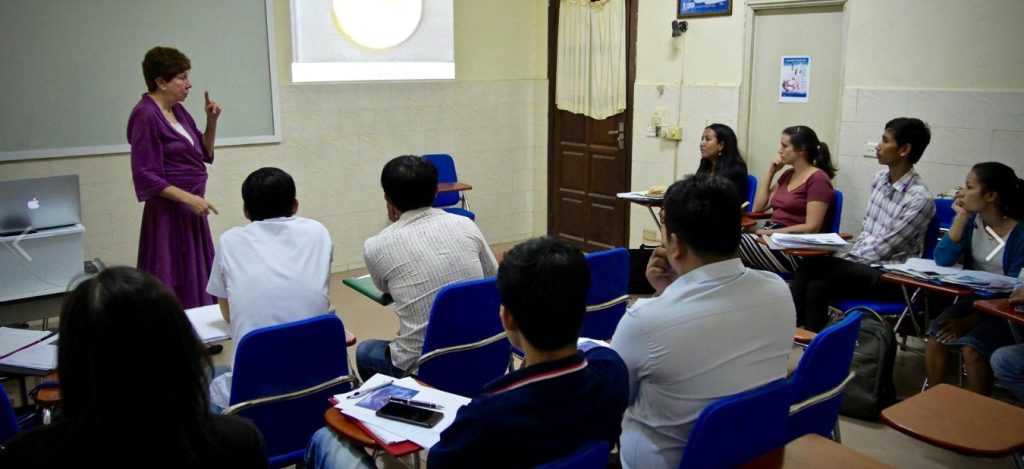
Speech and Swallowing Therapy Cambodia (SSTC)
In 2016, Speech Therapy Cambodia set up a Cambodian NGO with a Cambodian Board of Directors–Speech and Swallowing Therapy Cambodia (SSTC)–to facilitate in-country services. Ms Phivan Norg, who joined our STC team in 2015, was our original translator, interpreter, administrative assistant, treasurer, and everything else and first SSTC Country Director. Phivan left SSTC in 2017.
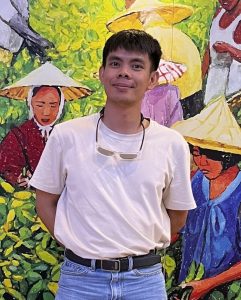 Mr Leng Veasna joined SSTC in 2018 as General Manager. Veasna provides support to our dysphagia clinicians and trainees and to our volunteer SLPs. This support includes negotiating with key hospital and government leadership and overseeing the administrative responsibilities of a Cambodian NGO. Veasna contributes to the strategic planning of the organization, helping us to establish goals that are sustainable and culturally applicable to Cambodia.
Mr Leng Veasna joined SSTC in 2018 as General Manager. Veasna provides support to our dysphagia clinicians and trainees and to our volunteer SLPs. This support includes negotiating with key hospital and government leadership and overseeing the administrative responsibilities of a Cambodian NGO. Veasna contributes to the strategic planning of the organization, helping us to establish goals that are sustainable and culturally applicable to Cambodia.
SSTC has initiated MOUs with the Cambodian Ministry of Health, with Cambodian universities, with our partner hospitals, and with other like-minded organizations in Cambodia with the goal of establishing speech therapy as a profession in Cambodia.
To ensure the continuity and effectiveness of the Cambodian clinicians, SSTC employed a year-round staff of two licensed SLPs to provide ongoing training, consultation, and clinical supervision to STC-trained clinicians.
From 2017 through 2022, SSTC provided ongoing training and clinical supervision for Cambodian doctors, nurses, and physical therapists across three public hospitals in Phnom Penh: Khmer Soviet Friendship Hospital (including the Sihanouk Geriatric Center), Calmette Hospital, and Kossamak Hospital.
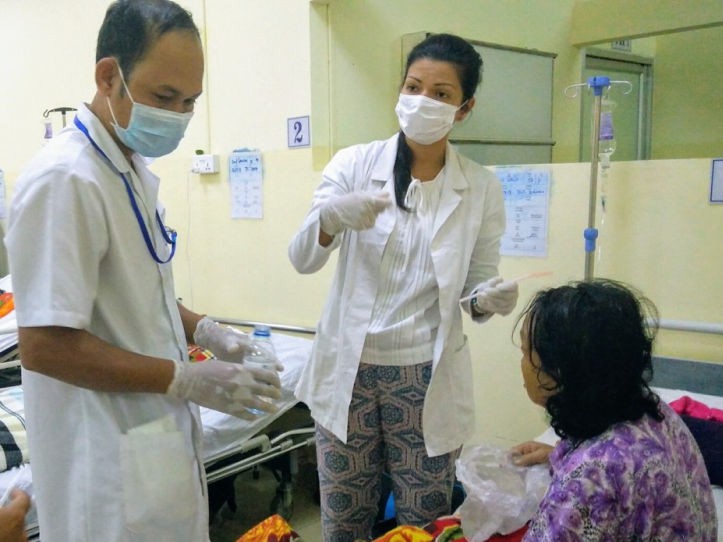
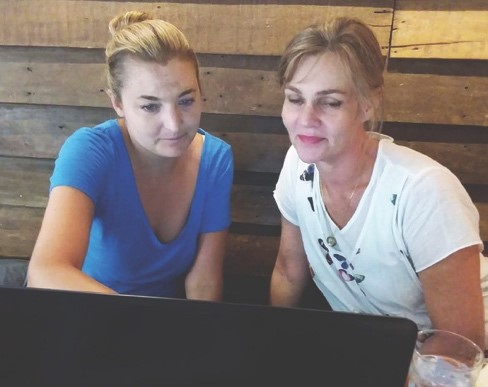
Stacey and Gerri, 2017-2018
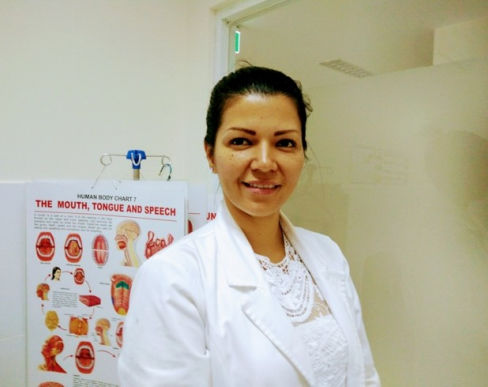
Paula, 2017-2020
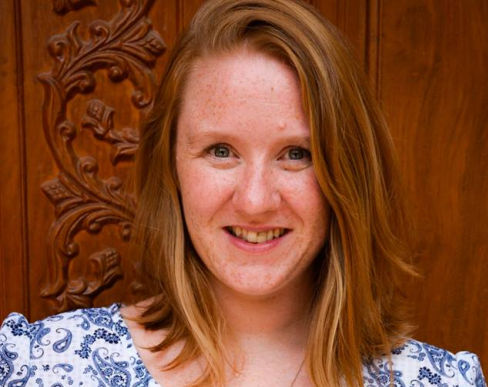
Annie, 2018-2020
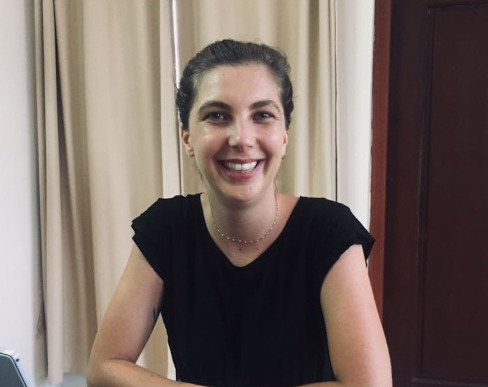
Emeline, 2021-2022
In addition to providing clinical supervision to SSTC-trained dysphagia clinicians, these SLPs organized an intensive training program with lectures and strict exams, and clinical competencies to be achieved.
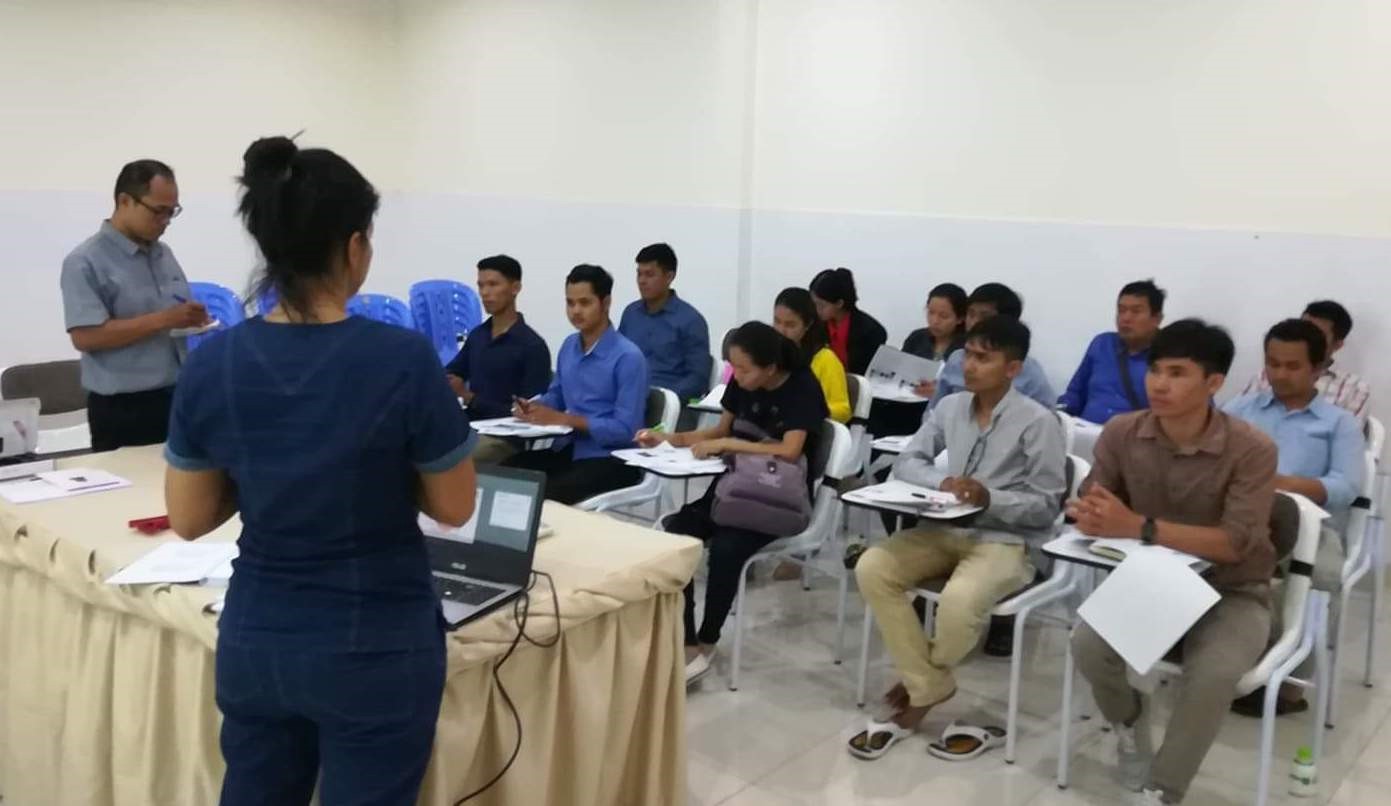
For this effort, Stacey and Gerri developed a 300-page training manual (all translated into Khmer) and training videos, handouts for family education, and much more. These training materials have provided the foundation for our new university course.
In addition, SSTC worked with Cambodian universities to establish limited-scope pilot courses in speech therapy, as steps toward our ultimate objective of establishing speech therapy as a profession in Cambodia.
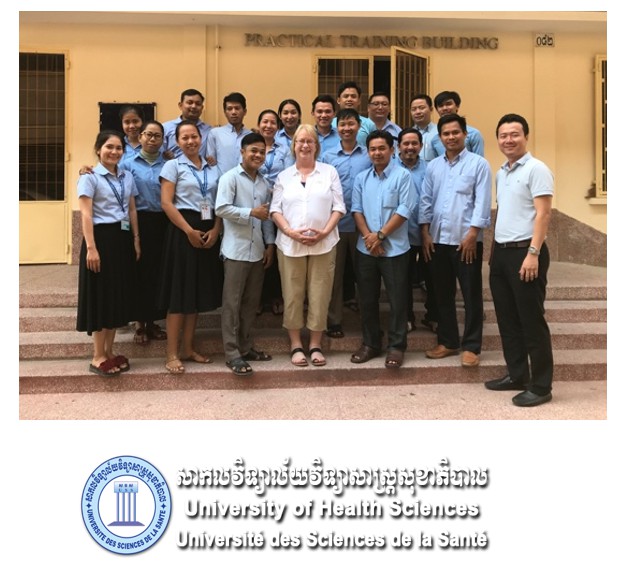
Cambodia’s FIRST University Course in Dysphagia Management
The vision of starting a university program began during the early years of STC, when it became apparent how much time and money it would take to build a critical mass of fully trained Cambodian dysphagia clinicians. It would also be crucial to create jobs for these trained clinicians. This would only be possible through collaboration with an established and well-respected Cambodian university.
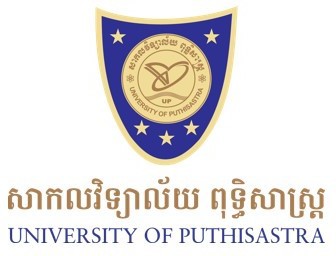
In October 2023, SSTC and the Cambodian University of Puthisastra launched the “Foundations of Adult Dysphagia Management” course. This is Cambodia’s FIRST post-graduate certificate course in dysphagia management, supported by the Medical and Nursing Councils of Cambodia and by the Cambodian Ministry of Health. These collaborations give dysphagia management education new legitimacy in Cambodia.
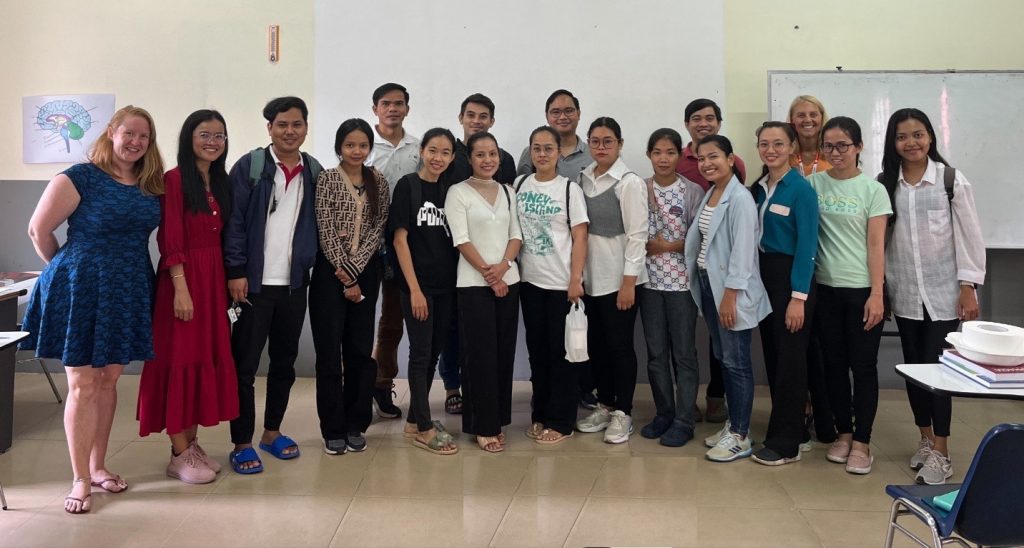
STC and SSTC have created a Cambodia-centric academic curriculum, with lectures (live and pre-recorded), videos, training manuals and in-person workshops. Everything is available in both English and Khmer. The training materials reflect the experience and learning of many years of onsite training by the SSTC team and international SLP staff.
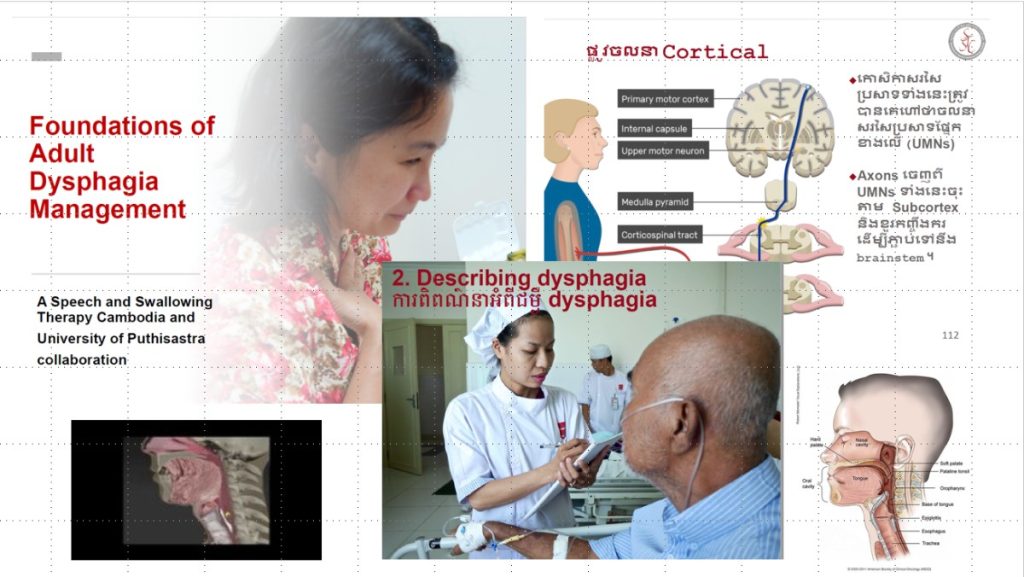
SSTC is working with hospital administrators at the five participating hospitals and clinics, and with the 15 doctors, nurses, and physical therapists who are the trainees in this first year of the university program, in order to measure the effectiveness of new dysphagia services at the hospitals. This monitoring and evaluation is critical to ensure the quality of the program. We are also establishing accountability, use of staff, and sophisticated systems to create dysphagia services and dysphagia clinical job opportunities.
Thanks to a generous grant from the Rotary International Foundation, we can supplement on-the-ground STC/SSTC leadership with Rotary-funded SLP volunteers and Khmer interpreters to provide one-on-one clinical supervision to university trainees during the last nine months of their course.
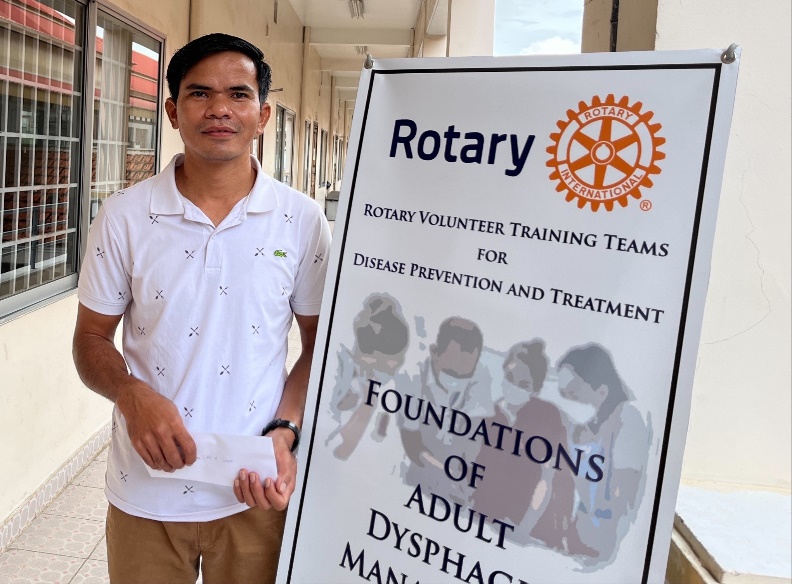
The first phase of the certificate program is 30-35 hours of lectures and workshops on the evaluation and treatment of dysphagia within a Cambodian context. This “theory” component of the course is delivered through in-class lectures and workshops as well as individually online via University of Puthisastra’s state-of-the-art learning platform.
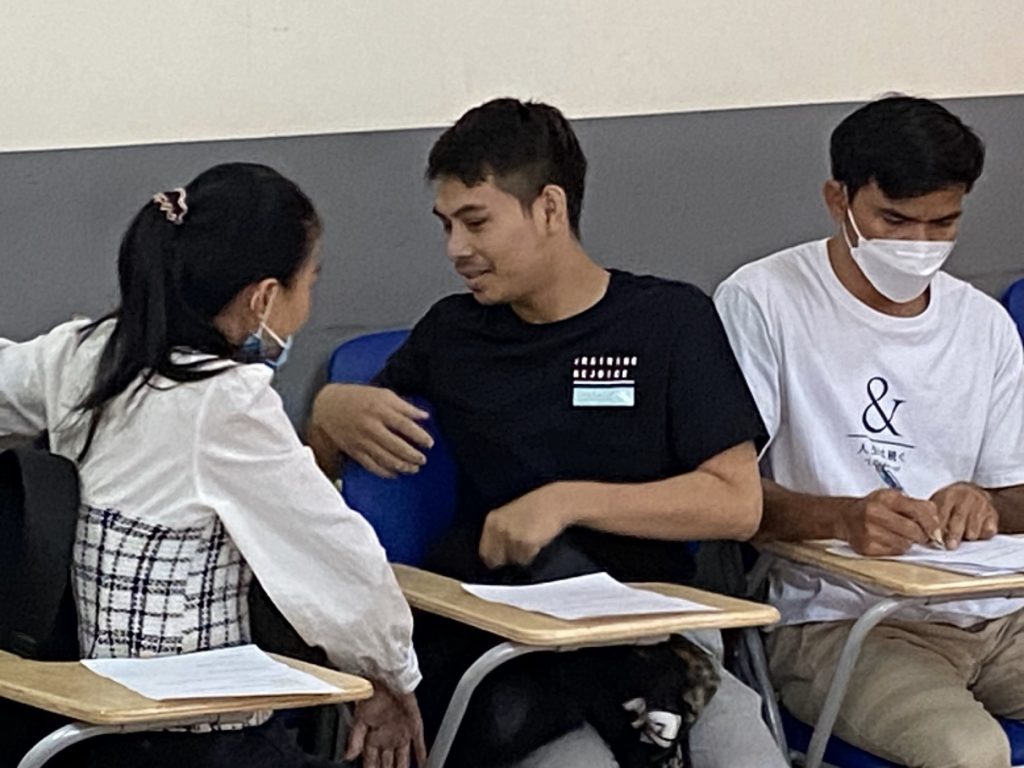
SSTC speech-language pathologist Annie Johnson was responsible for development of the academic curriculum, building on training materials and documentation developed over the past eight years by our teams of Cambodia-based speech-language therapists working with our partner hospitals and other institutions.
Dr. Alice E. Smith and other SLP professionals participated in the development of the lectures and workshops. Dr. Kathy Jakielski served as Course Coordinator during course rollout, working closely with the University and with partner hospitals.
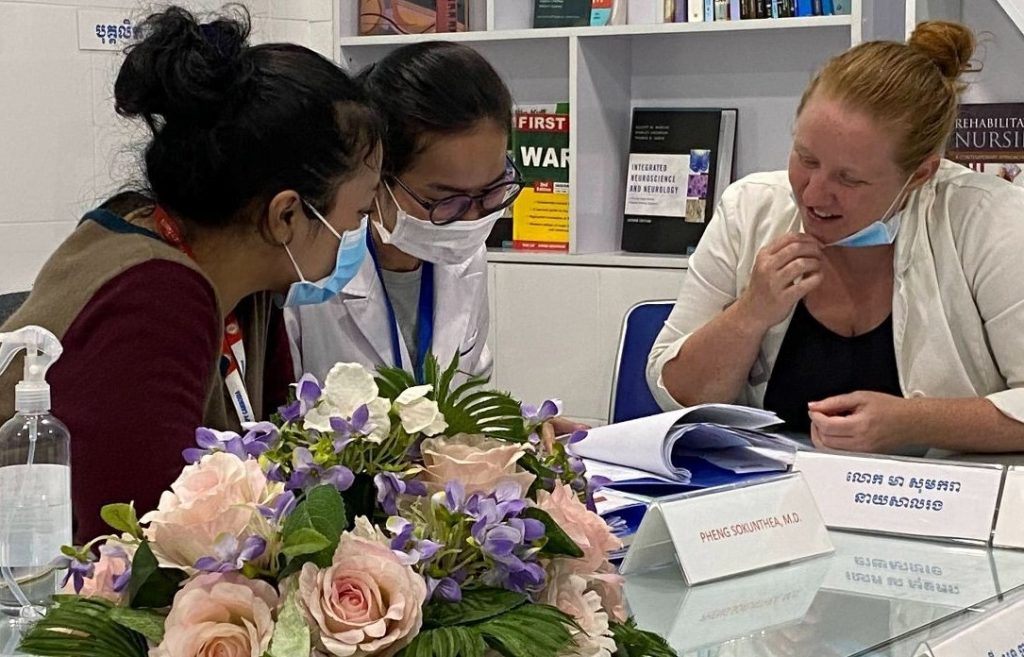
Once students have completed the three-month classroom lecture series and have passed the associated exams, they engage in supervised clinical practicums over the course of following nine months. During that time, they are supervised by qualified speech pathologists individually and in groups as they treat patients with dysphagia at their clinics or hospitals.
During the final months of the course, trainees who have passed the foundational competencies are observed in their workplaces and are coached by speech pathology supervisors about the specific cases they encounter.
Join our Team!
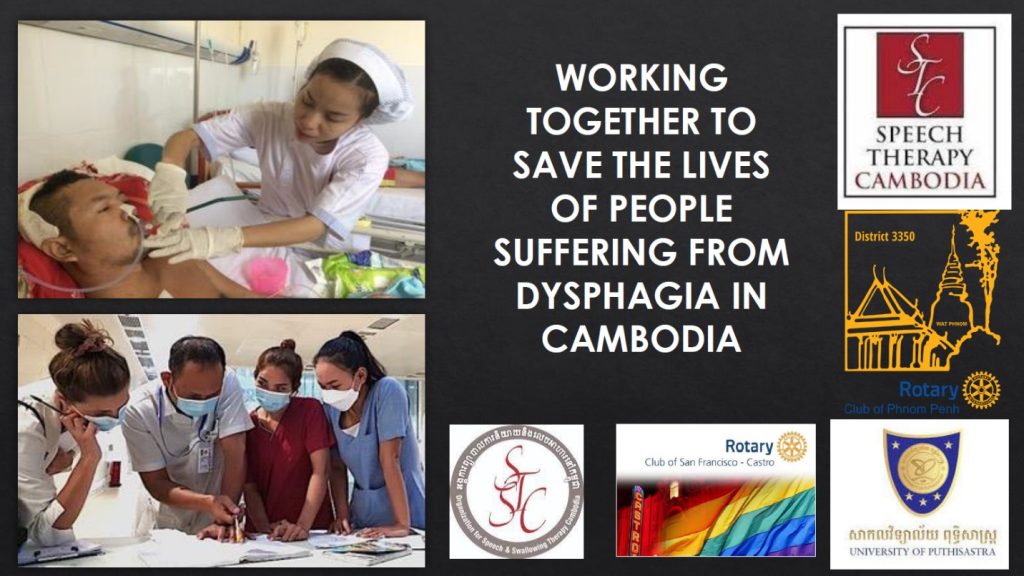
We are looking for speech-language pathologists with at least five years of experience in dysphagia treatment and management to provide clinical supervision for our university course in Cambodia for 2025-2026.
Travel and living expenses paid for a minimum three-month rotation.
For more information, please contact Elizabeth Chafcouloff at chafcouloff@gmail.com.